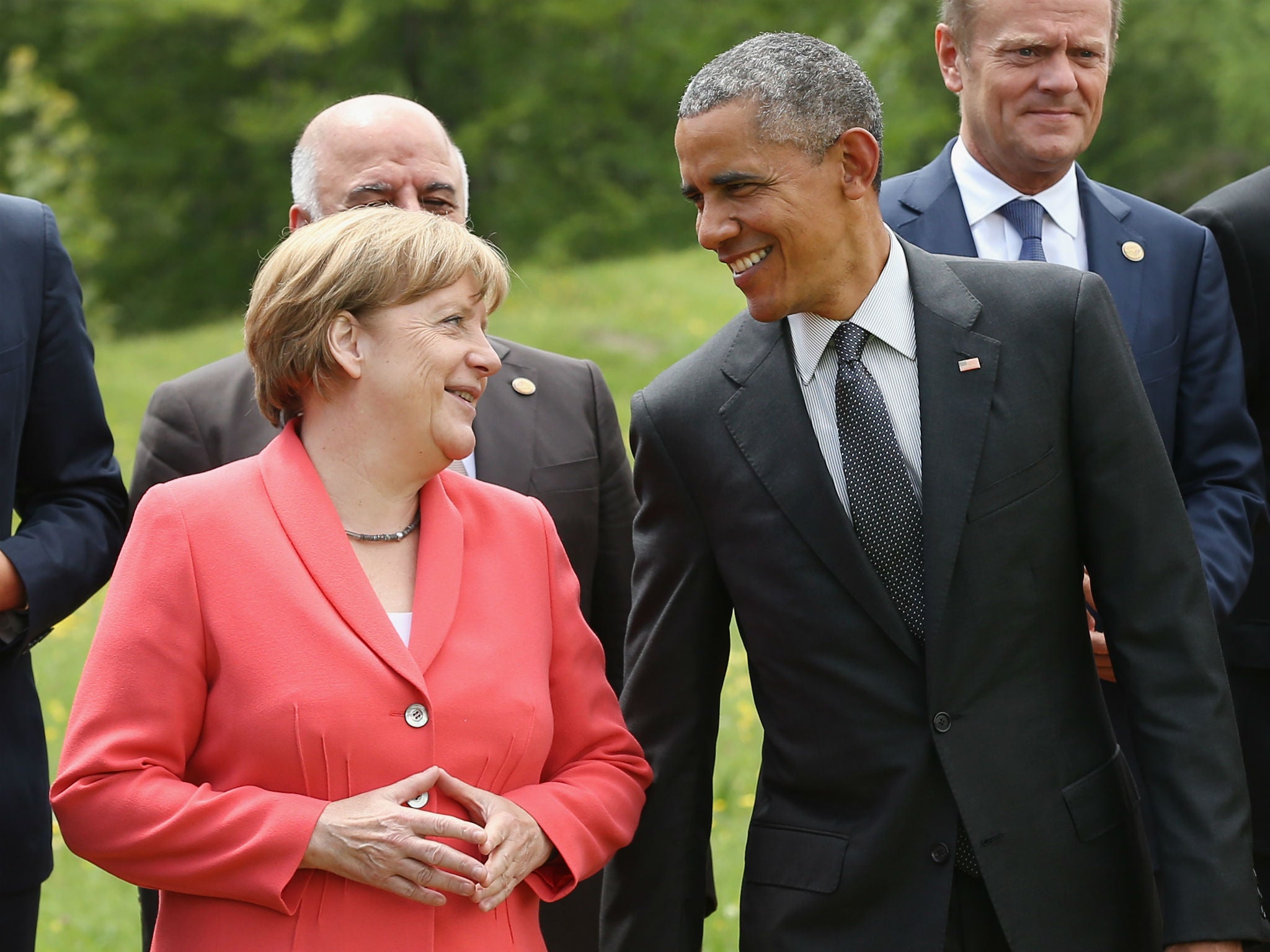Tens of thousands rally against TTIP deal in Germany ahead of President Obama visit
Opponents say the trade deal lacks transparency and would increase the powers of big businesses

Your support helps us to tell the story
From reproductive rights to climate change to Big Tech, The Independent is on the ground when the story is developing. Whether it's investigating the financials of Elon Musk's pro-Trump PAC or producing our latest documentary, 'The A Word', which shines a light on the American women fighting for reproductive rights, we know how important it is to parse out the facts from the messaging.
At such a critical moment in US history, we need reporters on the ground. Your donation allows us to keep sending journalists to speak to both sides of the story.
The Independent is trusted by Americans across the entire political spectrum. And unlike many other quality news outlets, we choose not to lock Americans out of our reporting and analysis with paywalls. We believe quality journalism should be available to everyone, paid for by those who can afford it.
Your support makes all the difference.Tens of thousands of protesters have demonstrated against the Trans-Atlantic Trade and Investment Partnership (TTIP) deal ahead of Barack Obama’s visit to hold talks over the controversial proposal.
Trade unions, consumer protection groups and environmentalists said they drew a crowd of 90,000 people to demonstrate on the streets of Hannover on Saturday, although local police claim it was closer to 30,000.
Protesters carried placards with slogans such as "Yes We Can - Stop TTIP!". One Greenpeace activist hung himself from a crane to show a poster reading "Yes, we can stop TTIP!" above the crowds.
The protests highlighted the antipathy towards the proposed free trade agreement between the US and EU, which opponents say would allow corporations to cut labour and erode environmental standards.
There is also anger over a supposed lack of transparency over the deal, with a recent YouGov survey revealing that almost half of Germans and Americans (48 per cent and 46 per cent respectively) claim they do not feel sufficiently informed.
Obama's trip was largely intended to boost waning efforts to see the TTIP finalised before the end of this year.
In a video statement on Saturday, Merkel insisted TTIP would not override citizens' rights or interests, describing it as a “win-win situation" that, due to the huge scale of a market involving the US and Europe, "could set global standards".
But support for the deal among Germans has dropped from 55 per cent two years ago to just 17 per cent in 2016, according to the YouGov survey carried out for the Bertelsmann Foundation.
Support in the US has fallen from 53 per cent in 2014 to 18 per cent.
In Britain, more than 150,000 people have signed a petition by campaign group 38 Degrees urging Mr Obama to quit negotiating the deal with David Cameron.
The letter addressed to Mr Obama on the 38 Degrees website states: "British people believe that no trade deal should give corporations more power than people. There are better ways of working together. Please stop negotiations of the TTIP trade deal".
Mr Cameron publicly announced support for the deal on Friday following talks with Mr Obama, insisting TTIP “would add billions to our economies and set the standards for the rest of the world to follow”.
But scepticism in the face of those arguments is growing in Germany, with Economy Minister Sigmar Gabriel recently admitting: “It is possible that TTIP will fail.”
Mr Obama's meeting with Angela Merkel marks his last stop on a six-day trip to Europe. As well as discussing the trade deal, the leaders will be discussing the Islamic State and the offset of Russian aggression in Ukraine and Syria.
Join our commenting forum
Join thought-provoking conversations, follow other Independent readers and see their replies
Comments